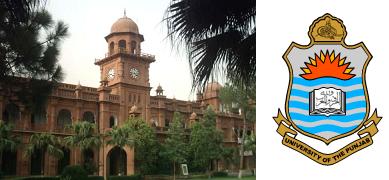University of the Punjab (Pakistan)

The University of the Punjab, often known as Punjab University (PU), is located in Lahore, Pakistan. PU was established in 1882 at Lahore, making it the oldest university in Pakistan. PU has approximately 30,000 students enrolled on 4 campuses. The mission of the University of the Punjab includes educating students to understand "their role in the wider community of humankind and responsibility to it" and to "make a positive contribution to public life." University of the Punjab’s website>>
Civic Engagement Approach at Punjab University
Through civic engagement the university thus seeks to develop socially responsible citizens who are engaged in providing meaningful contributions to the societies in which they study, live, and work. Within this context, the university’s civic engagement activities are guided by four core operational principles: quality, relevance, impact, and access. This is all achieved through conducting appropriate research and engaging in advocacy and consensus-building activities, all with a focus on health, education, and human and community development.
Civic engagement is seen as being integrally linked to both curriculum development and research. Making research relevant to the needs of the local population is a key feature of the university’s research culture. PU has implemented primary health programs designed to improve overall family health, with a particular focus on the health of mothers and children under the age of five. Programs have now expanded to address the root causes of poor health, taking an integrated approach that includes income generation, education, the supply of clean water and sanitation, and community mobilization.
The Quality Enhancement Cell of University of the Punjab plays a significant role in improving the quality of education through human resource development, institutional capacity building, policy analysis, and advocacy. The Cell’s major focus is on improving the performance of teachers in targeted communities, and reaching other stakeholders such as education managers in the public and private sectors through professional development that is focused on school improvement. The Cell’s civic engagement programs and activities are part of the curriculum.